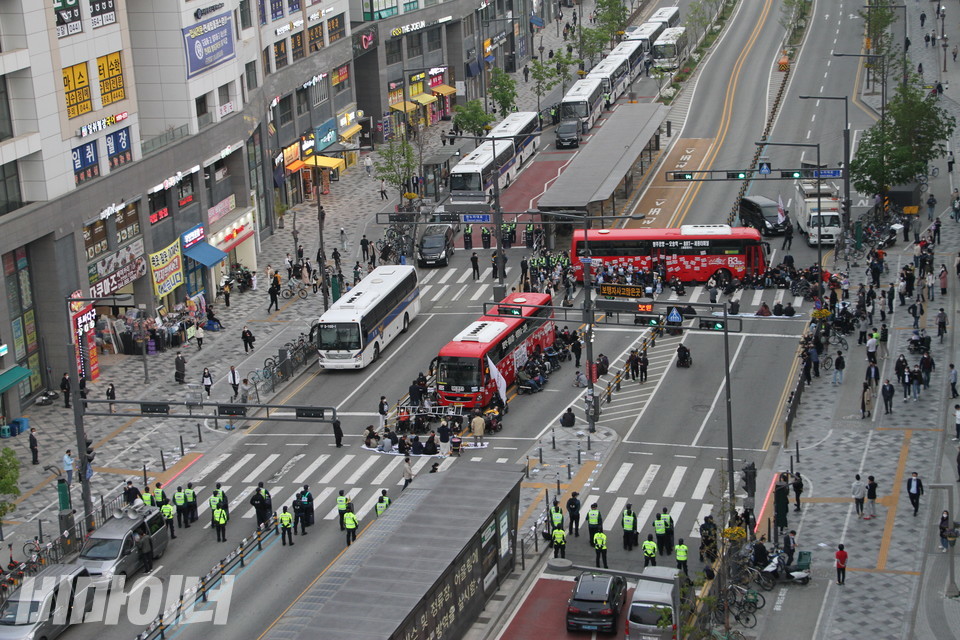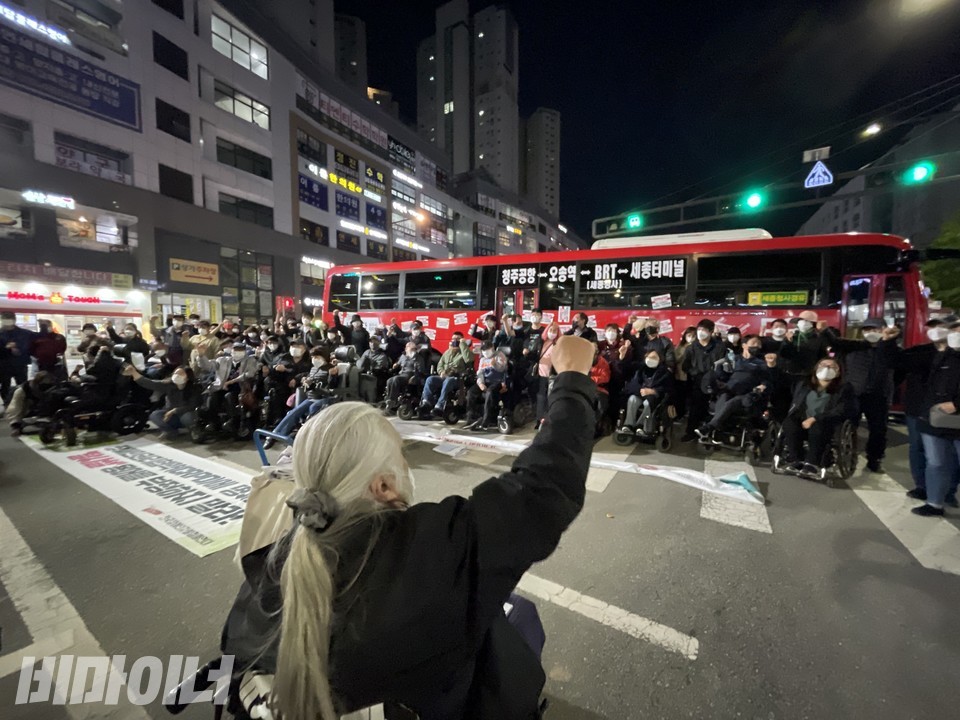
©️beminor
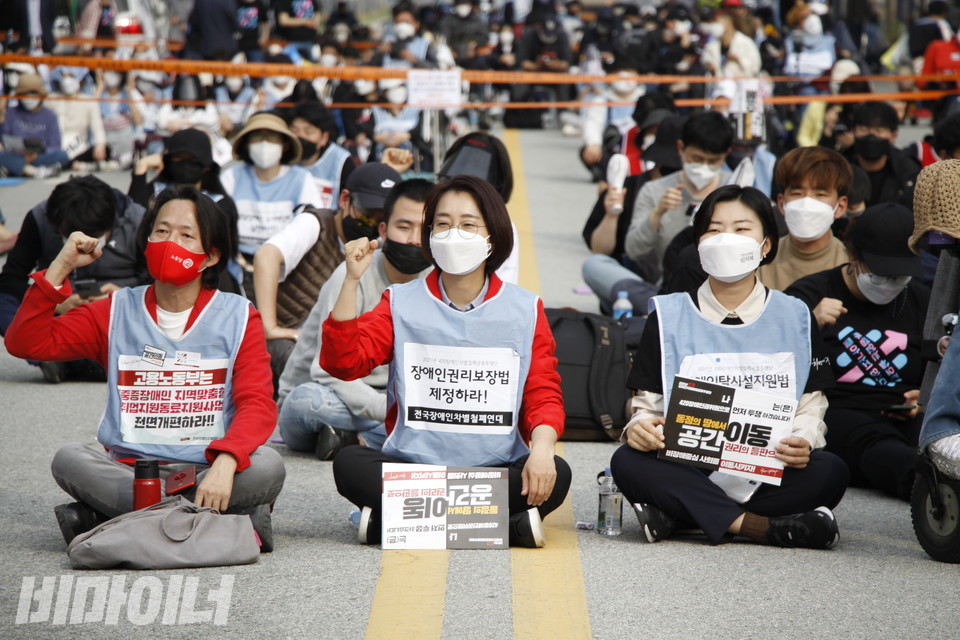
©️beminor
On the "Day for the Abolition of Disability Discrimination", 20 April, over 400 disabled people gathered in front of the Ministry of Health and Welfare and held the 20th "420 Rally for the Abolition of Disability Discrimination". At the rally, disabled people's organisations including Solidarity Against Disability Discrimination(SADD), demanded enactment of the Deinstitutionalisation Act and Disability Rights Act.
The Republic of Korea celebrates 20th April as a "Day for the persons with disabilities". However, the Korean disability community denies the implicit meaning of pity and charity and re-named it the "Day for the Abolition of Disability Discrimination".
The main themes of the 2021 Day for the Abolition of Disability Discrimination were 'Deinstitutionalisation and Independent Living in the community' and 'Right-based Welfare System'.
-Deinstitutionalisation as the right of the disabled people
In ROK, 29,662 disabled people are living in 1,527 institutions(as of 2019). This population even does not include persons living in psychiatric hospitals. Disabled people in Korea have advocated the right of deinstitutionalisation since 2005.
As a result of the consistent and strong demand for deinstitutionalisation, Moon Jae-In administration promised that it will make a better environment for independent living of the persons with disabilities, including the establishment of a national deinstitutionalisation strategy and a 'National Deinstitutionalisation Supporting Center'.
However, now the government, Ministry of Health and Welfare, refuses to use the term 'deinstitutionalisation' for official naming, saying that 'it is not neutral to use'. Questioning the excuse by the government, the Korean disability community argues to use the term 'deinstitutionalisation as it was promised, insisting that using this term can clarify the direction and will to 'leave no one behind.
On 21st April, the next day of the Day of the Abolition of Disability Discrimination, disability activists climbed over the wall of the Ministry of Health and Welfare, demanding to recognise the rights of deinstitutionalisation and use the term 'deinstitutionalisation(Talshiseol in Korean)'. "It(deinstitutionalisation) is our right stated in UN CRPD(ROK has signed the convention on 2007). The government should not deny the rights of the disabled people" Park Kyeong-Seok, one of the leading disability activists from SADD, said.
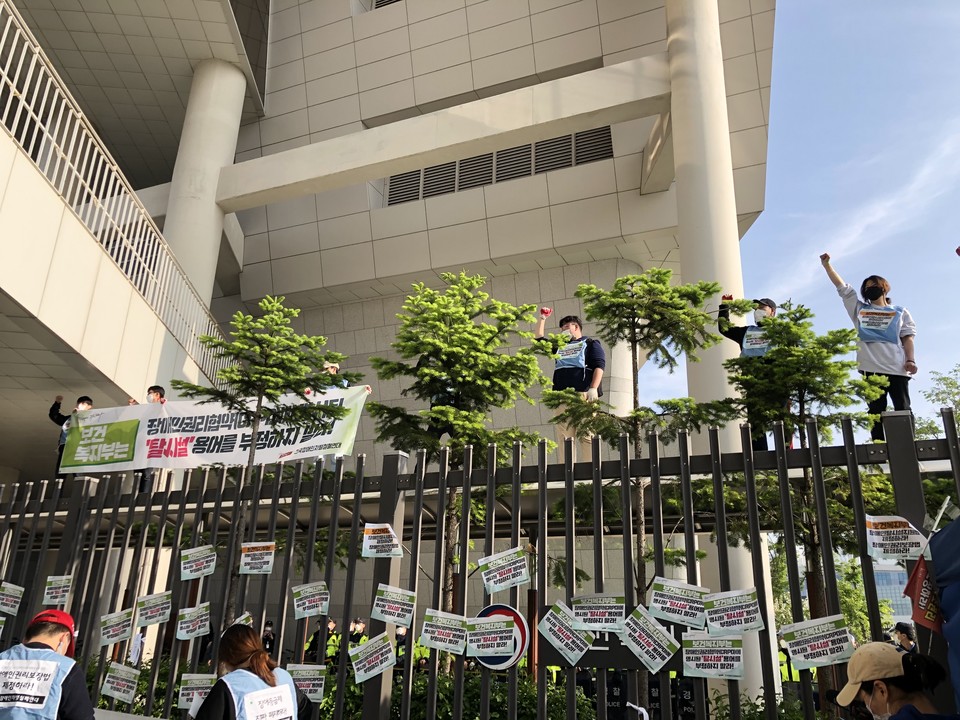
©️beminor
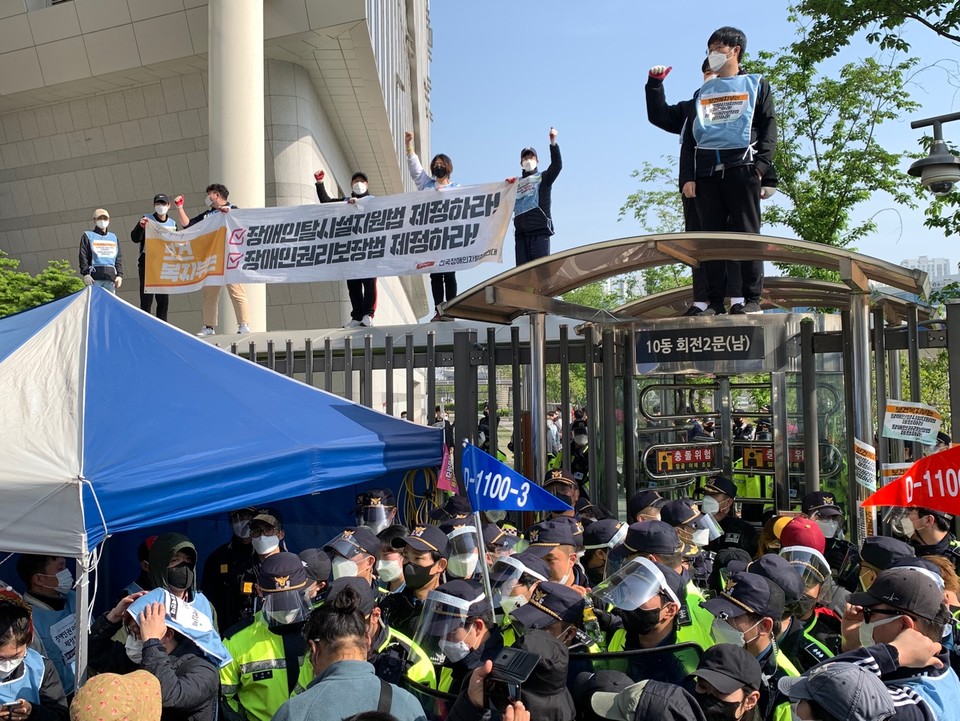
©️beminor
-It is necessary to enact the "Disability Right Protection Act"
Korean disability community also demands the enactment of the "Disability Rights Protection Act". The bill states that the disability policies should take human rights approach, instead of a medical approach. Korean DPOs have been asking for the right-based law since 2014. Choi Yong-Ki, president of Korea Council of Center for Independent Living(KCCIL), said at the rally emphasising the necessity of the right-based law, "we, disabled people are not the object of rehabilitation, treatment, and pity", he kept saying, "We are right-holders as all of the others, and our rights can be protected only when the society is changed, not when we're 'fixed'."
One of the rights hardly protected in ROK is the 'right to mobility. In 2001, an elderly woman with disability died after falling from wheelchair lift in Oido subway station. This accident sparked the mobility rights struggle of DPOs. Disability activists occupied rails and roads and stopped buses. After 20 years of fight for the right to mobility, accessible buses and lifts are introduced in Korean society. However, the rate of accessible transportation is still too low and Seoul-focused; only 28% of total buses in Korea are accessible as of 2020. On the Day for the abolition of disability discrimination, disability activists occupied roads and hold unaccessible buses in Sejong city, the de facto administrative capital of South Korea, demanding protection of the right to mobility of disabled people in Korea.
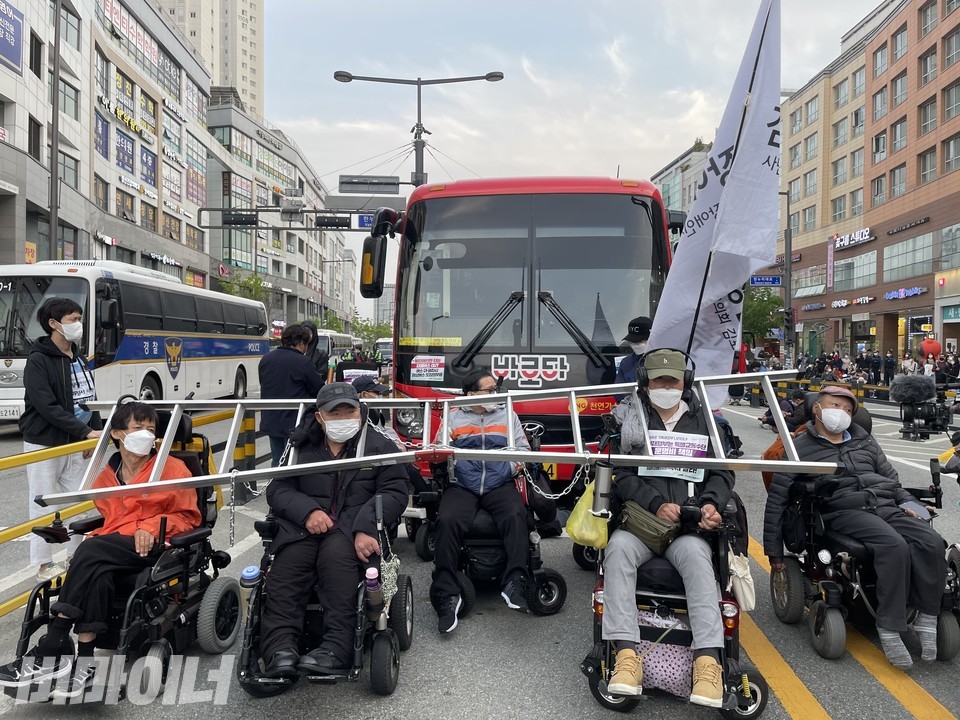
©️beminor
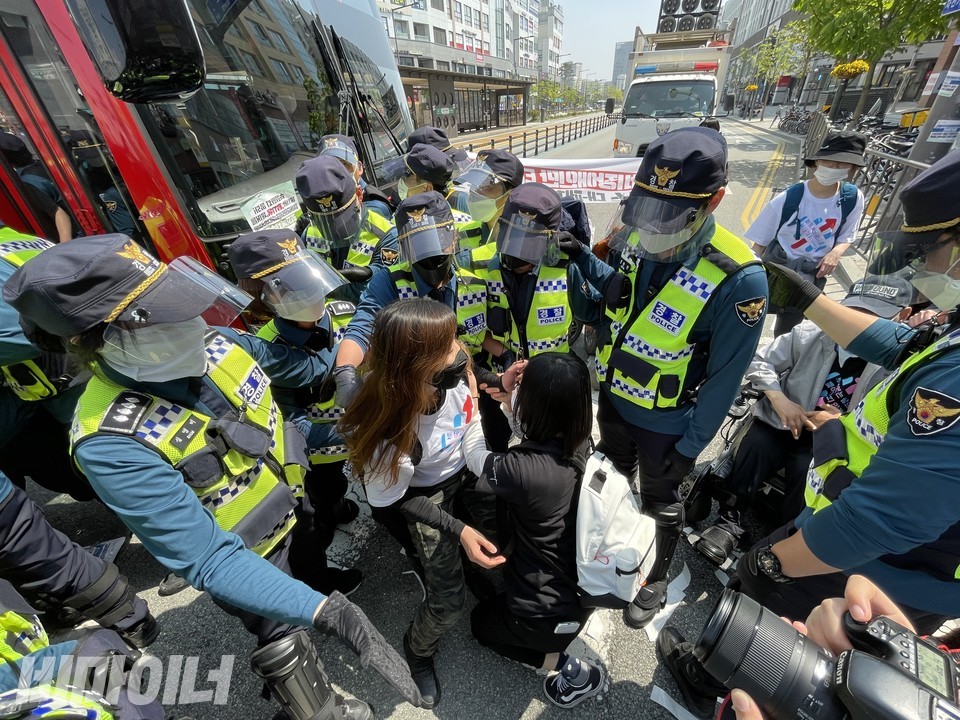
©️beminor
